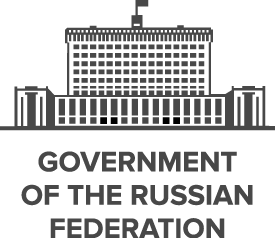Founded in the 12th century, the Principality of Muscovy was able to emerge from over 200 years of Mongol domination (13th-15th centuries) and to gradually conquer and absorb surrounding principalities. In the early 17th century, a new ROMANOV Dynasty continued this policy of expansion across Siberia to the Pacific. Under PETER I (ruled 1682-1725), hegemony was extended to the Baltic Sea and the country was renamed the Russian Empire. During the 19th century, more territorial acquisitions were made in Europe and Asia. Defeat in the Russo-Japanese War of 1904-05 contributed to the Revolution of 1905, which resulted in the formation of a parliament and other reforms. Repeated devastating defeats of the Russian army in World War I led to widespread rioting in the major cities of the Russian Empire and to the overthrow in 1917 of the imperial household. The communists under Vladimir LENIN seized power soon after and formed the USSR. The brutal rule of Iosif STALIN (1928-53) strengthened communist rule and Russian dominance of the Soviet Union at a cost of tens of millions of lives. After defeating Germany in World War II as part of an alliance with the US (1939-1945), the USSR expanded its territory and influence in Eastern Europe and emerged as a global power. The USSR was the principal adversary of the US during the Cold War (1947-1991). The Soviet economy and society stagnated in the decades following Stalin’s rule, until General Secretary Mikhail GORBACHEV (1985-91) introduced glasnost (openness) and perestroika (restructuring) in an attempt to modernize communism, but his initiatives inadvertently released forces that by December 1991 splintered the USSR into Russia and 14 other independent republics.
Following economic and political turmoil during President Boris YELTSIN's term (1991-99), Russia shifted toward a centralized authoritarian state under the leadership of President Vladimir PUTIN (2000-2008, 2012-present) in which the regime seeks to legitimize its rule through managed elections, populist appeals, a foreign policy focused on enhancing the country's geopolitical influence, and commodity-based economic growth. Russia faces a largely subdued rebel movement in Chechnya and some other surrounding regions, although violence still occurs throughout the North Caucasus.
Russia is a semi-presidential federation.
Members:
Resources
Displaying 1016 - 1020 of 1046Federal Law No. 13-FZ introducing amendments and addenda to the Federal Law No. 209-FZ on land survey and cartography.
The following amendments and addenda must be introduced to the Federal Law No. 209-FZ: 1) In the item 2 of the Article 3 must be supplemented with the wording “topographic monitoring”; paragraph 11 of the same article must be supplemented with the wording “provision with geodetic, cartographic, topographic and hydrographical materials regarding regional and state boundaries”; paragraph 15 of the same article acquires a new wording “setting, normalization, regulation of usage, registration, recording and conservation of the names of geographic objects’’.
Federal Law No. 10-FZ introducing amendments to the Federal Law No. 101-FZ on turnover of agricultural land.
The wording “two” in the items 1 and 2 of the Article 16 of the Federal Law No. 101-FZ on turnover of agricultural land must be substituted with the wording “four”.
Amends: Federal Law No. 101-FZ on turnover of agricultural land. (2003-07-07)
Federal Law No. 101-FZ on turnover of agricultural land.
The present Federal Law regulates relations connected with ownership, land tenure and disposal of the plots of agricultural land, sets use restrictions applicable to transactions with the plots and shares in common property of agricultural land out of which land rights shall originate or cease, determines the terms and conditions of allotment of the plots of agricultural land pertaining to public or municipal property, and also the modalities of expropriation thereof for public and municipal needs.
Decree No. 891-1 of the Presidium of the Supreme Soviet and of the Council of Ministers of the RSFSR regarding additional arrangements for speeding-up land reform.
President of the Supreme Soviet and President of the Council of Ministers decree that provisional certificates of ownership, possession and tenancy of land till the issuing of state acts if the decision of the local Council of People’s Deputies of the allotment of land. State Statistical Committee and State Committee on Land Reform must ensure monthly reporting on the allotment of land for the organization of peasant farms and quarterly reporting on the allotment of land for gardening and subsidiary small-holding.
Technical requirements for the plan of a plot of land.
Plan of a plot of land must be usually designed with the application of the national system of coordinates. For securing the boundaries of a plot of land on location there must be installed landmarks. Specially designed point of a boundary of a plot of land or other object. Average errors in the position of the landmarks respectively to the nearest points of state geodetic network must not exceed 0,1 mm on the map of scale of 1:2000.


